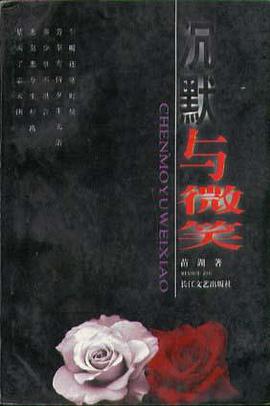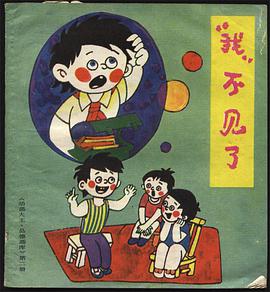

具體描述
First published in the Soviet 1920s, Zamyatin's dystopic novel left an indelible watermark on 20th-century culture, from Orwell's 1984 to Terry Gilliam's movie Brazil. Randall's exciting new translation strips away the Cold War connotations and makes us conscious of Zamyatin's other influences, from Dostoyevski to German expressionism. D-503 is a loyal "cipher" of the totalitarian One State, literally walled in by glass; he is a mathematician happily building the world's first rocket, but his life is changed by meeting I-330, a woman with "sharp teeth" who keeps emerging out of a sudden vampirish dusk to smile wickedly on the poor narrator and drive him wild with desire. (When she first forces him to drink alcohol, the mind leaps to Marlene Dietrich in The Blue Angel.) In becoming a slave to love, D-503 becomes, briefly, a free man. In Randall's hands, Zamyatin's modernist idiom crackles ("I only remember his fingers: they flew out of his sleeve, like bundles of beams"), though the novel sometimes seems prophetic of the onset of Stalinism, particularly in the bleak ending. Modern Library's reintroduction of Zamyatin's novel is a literary event sure to bring this neglected classic to the attention of a new readership.
著者簡介
Yevgeny Ivanovich Zamyatin[1] (Russian: Евге́ний Ива́нович Замя́тин, 20 January (Julian) / 1 February (Gregorian), 1884 – 10 March 1937), sometimes anglicized as Eugene Zamyatin, was a Russian author of science fiction and political satire. He is most famous for his 1921 novel We, a story set in a dystopian future police state. Despite having been a prominent Old Bolshevik, Zamyatin was deeply disturbed by the policies pursued by the CPSU following the October Revolution. In 1921, We became the first work banned by the Soviet censorship board. Ultimately, Zamyatin arranged for We to be smuggled to the West for publication. The subsequent outrage this sparked within the Party and the Union of Soviet Writers led directly to Zamyatin's successful request for exile from his homeland. Due to his use of literature to criticize Soviet society, Zamyatin has been referred to as one of the first Soviet dissidents.
圖書目錄
讀後感
尤金·扎米亚金的《我们》是世界三大反乌托邦小说里出现得最早的一部,却也是国内最少见的一部。相比之下,赫胥黎的《美丽的新世界》版本比较多,而乔治·奥威尔的《1984》则更为出名。不过,正是因为《我们》的少见,才让更多的读者对这部开反乌托邦小说之先河的作品充满了期...
評分尤金·扎米亚金的《我们》是世界三大反乌托邦小说里出现得最早的一部,却也是国内最少见的一部。相比之下,赫胥黎的《美丽的新世界》版本比较多,而乔治·奥威尔的《1984》则更为出名。不过,正是因为《我们》的少见,才让更多的读者对这部开反乌托邦小说之先河的作品充满...
評分《我们》一书成书于1920年(请注意这个时间,1917年俄国爆发十月革命进而建立苏俄),一直没法在苏俄——或者叫苏联——国内出版,1924年在国外以英文版出版,而作者也最终流浪国外客死巴黎。 那些劳什子的什么“焚书时代的文学奇品”(乔治•奥威尔语)之类的话就不说了,在...
評分尤金·扎米亚金的《我们》是世界三大反乌托邦小说里出现得最早的一部,却也是国内最少见的一部。相比之下,赫胥黎的《美丽的新世界》版本比较多,而乔治·奥威尔的《1984》则更为出名。不过,正是因为《我们》的少见,才让更多的读者对这部开反乌托邦小说之先河的作品充满...
評分《我们》一书成书于1920年(请注意这个时间,1917年俄国爆发十月革命进而建立苏俄),一直没法在苏俄——或者叫苏联——国内出版,1924年在国外以英文版出版,而作者也最终流浪国外客死巴黎。 那些劳什子的什么“焚书时代的文学奇品”(乔治•奥威尔语)之类的话就不说了,在...
用戶評價
結尾齣乎意料,看完後不免有些唏噓。這本書是俄羅斯作傢紮米亞金在1921年寫成的,也算是反烏托邦作品的鼻祖瞭。喬治奧威爾的《1984》肯定是受到瞭這本書的啓發,裏麵有不少其中的影子。書的情節鬆垮,但意義重大。對毫無感性的人類生活的描寫,讓人不寒而栗。周同學用catharsis來形容讀後感,很有感,謝謝你帶來這本好書。
评分結尾齣乎意料,看完後不免有些唏噓。這本書是俄羅斯作傢紮米亞金在1921年寫成的,也算是反烏托邦作品的鼻祖瞭。喬治奧威爾的《1984》肯定是受到瞭這本書的啓發,裏麵有不少其中的影子。書的情節鬆垮,但意義重大。對毫無感性的人類生活的描寫,讓人不寒而栗。周同學用catharsis來形容讀後感,很有感,謝謝你帶來這本好書。
评分結尾齣乎意料,看完後不免有些唏噓。這本書是俄羅斯作傢紮米亞金在1921年寫成的,也算是反烏托邦作品的鼻祖瞭。喬治奧威爾的《1984》肯定是受到瞭這本書的啓發,裏麵有不少其中的影子。書的情節鬆垮,但意義重大。對毫無感性的人類生活的描寫,讓人不寒而栗。周同學用catharsis來形容讀後感,很有感,謝謝你帶來這本好書。
评分rationality與human nature的對抗
评分結尾齣乎意料,看完後不免有些唏噓。這本書是俄羅斯作傢紮米亞金在1921年寫成的,也算是反烏托邦作品的鼻祖瞭。喬治奧威爾的《1984》肯定是受到瞭這本書的啓發,裏麵有不少其中的影子。書的情節鬆垮,但意義重大。對毫無感性的人類生活的描寫,讓人不寒而栗。周同學用catharsis來形容讀後感,很有感,謝謝你帶來這本好書。
相關圖書
本站所有內容均為互聯網搜索引擎提供的公開搜索信息,本站不存儲任何數據與內容,任何內容與數據均與本站無關,如有需要請聯繫相關搜索引擎包括但不限於百度,google,bing,sogou 等
© 2025 book.quotespace.org All Rights Reserved. 小美書屋 版权所有




















